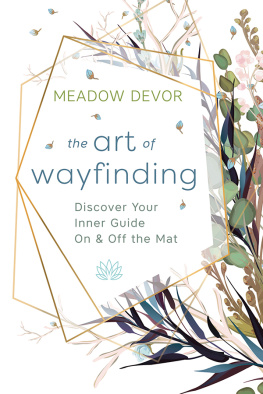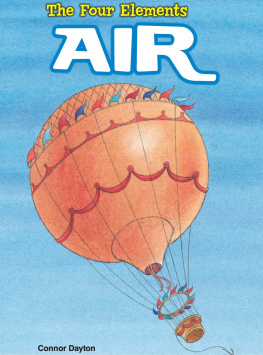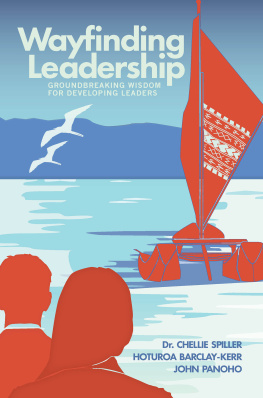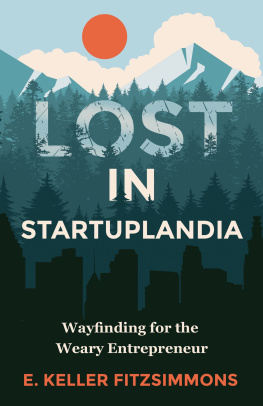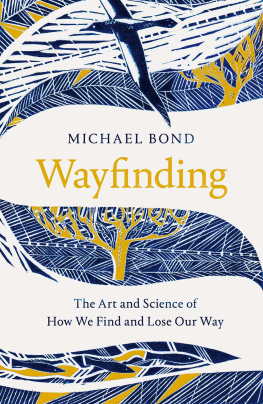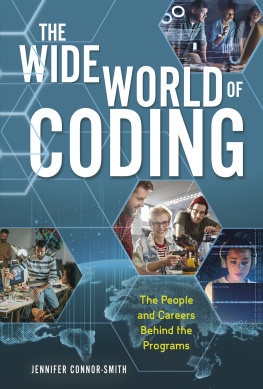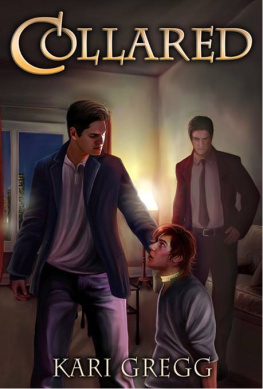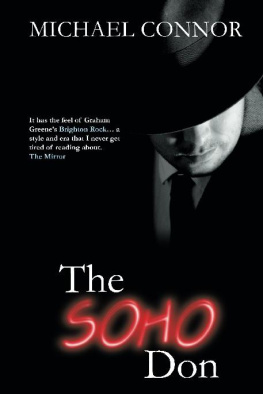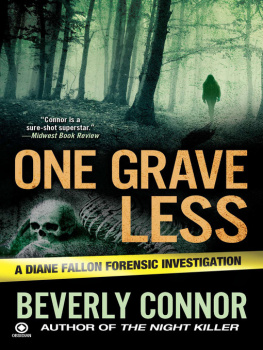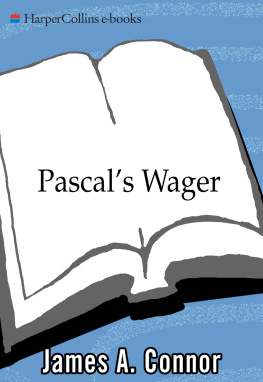M. R. O’Connor - Wayfinding
Here you can read online M. R. O’Connor - Wayfinding full text of the book (entire story) in english for free. Download pdf and epub, get meaning, cover and reviews about this ebook. City: New York, year: 2019, publisher: St. Matin’s Press, genre: Science. Description of the work, (preface) as well as reviews are available. Best literature library LitArk.com created for fans of good reading and offers a wide selection of genres:
Romance novel
Science fiction
Adventure
Detective
Science
History
Home and family
Prose
Art
Politics
Computer
Non-fiction
Religion
Business
Children
Humor
Choose a favorite category and find really read worthwhile books. Enjoy immersion in the world of imagination, feel the emotions of the characters or learn something new for yourself, make an fascinating discovery.

- Book:Wayfinding
- Author:
- Publisher:St. Matin’s Press
- Genre:
- Year:2019
- City:New York
- Rating:3 / 5
- Favourites:Add to favourites
- Your mark:
- 60
- 1
- 2
- 3
- 4
- 5
Wayfinding: summary, description and annotation
We offer to read an annotation, description, summary or preface (depends on what the author of the book "Wayfinding" wrote himself). If you haven't found the necessary information about the book — write in the comments, we will try to find it.
Wayfinding — read online for free the complete book (whole text) full work
Below is the text of the book, divided by pages. System saving the place of the last page read, allows you to conveniently read the book "Wayfinding" online for free, without having to search again every time where you left off. Put a bookmark, and you can go to the page where you finished reading at any time.
Font size:
Interval:
Bookmark:
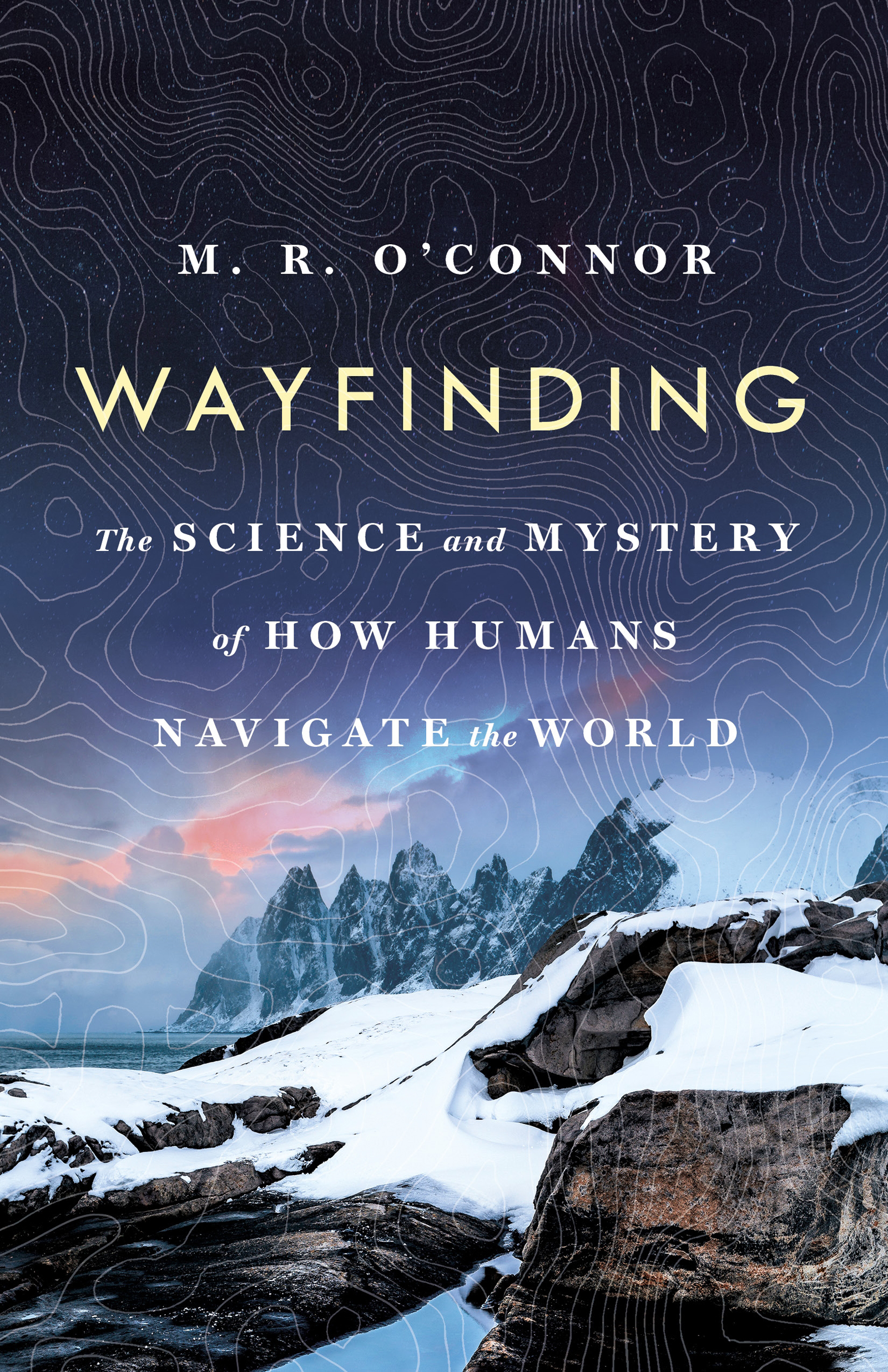

The author and publisher have provided this e-book to you for your personal use only. You may not make this e-book publicly available in any way. Copyright infringement is against the law. If you believe the copy of this e-book you are reading infringes on the authors copyright, please notify the publisher at: us.macmillanusa.com/piracy.
For Joaqun and Tareq
There is no need to build a labyrinth when the entire universe is one.
JORGE LUIS BORGES
In the high plains east of Denver we rented a car and drove due south on Interstate 25 straight as an arrow toward the cities of Colorado Springs and Pueblo. I watched the landscape rush by at seventy miles per hour, while overhead cumulus clouds cast their shadows on the open country. Just past the New Mexico border we turned southwest and began to hug the Santa Fe National Forest through Cimarron, then drove due west into Eagle Nest and Angel Fire. That night we slept in a motel in Taos and I woke up with an idea to visit a local hot spring on the banks of the Rio Grande. I put the name of the spring in my phones navigation app and we drove out of town, following its directions, turning down a dirt road that led into a low-lying sagebrush vega. For the next while we turned onto one unmarked dirt road after another. I focused my attention on the phones directions until I realized that the track had ended and we could go no farther. We got out of the car and met the waft of dust and crumpled sage, then walked fifty yards ahead to the edge of a cliff. I leaned forward and saw the Rio Grande surging a hundred feet below.
Somewhere nearby, I guessed, there must be a hot spring, and if only we had brought along some ropes and belay equipment or maybe a parachute we could have gotten to it with less risk to our lives. Though our predicament made me laugh, I started to wonder: what mathematical calculation based on an unknown, perhaps out-of-date map had come up with this murderous route? And why, I thought, had we naively trusted a disembodied algorithm and its satellite-radiated directions as it directed us toward a steep gorge? I had forgotten that my phone knew nothing of whether humans can fly, or the seasonal flow of the Rio Grande, that it had no actual experience because it had never been born, only programmed by someone who might never have set foot in New Mexico.
The novelist Audrey Niffenegger has written that there are different ways to react to being lost. Panic is one. Another is to surrender and allow the fact that youve misplaced yourself to change the way you experience the world. We walked back to the car and sat on its warm hood. Severed from the umbilical cord of our GPS, we looked anew at the land. Before us lay a maze of brush stretching miles into the distance until it met the foot of the mountains, now cast in the purple shade of gathering thunderstorms. What was this place called? We didnt know and we had no map. We took in our unexpected perch and watched two distinct storm fronts to the north and south. The tangled balls of energy and lightning picked up speed, blowing toward us like tumbleweeds across the plain. The first drops of rain hit the dirt, and we raced our way out of the high desert labyrinth to a paved road that would deliver us to the sanctuary of better-mapped places.
For a long time I kept returning to that feeling of disorientation in New Mexico. I was struck by the power of a device to influence the way I moved through the world, how it subsumed my attention, mediated my perception, and lulled me into something like passivity. The way I viewed the technology in my hand changed; I felt suspicious. I was twenty-six when the first smartphone equipped with navigation technology was released, old enough that Id spent my adolescence and the start of my adulthood relying on experience, habit, exploration, paper maps, signage, word of mouth, and trial and error to find my way around. I bought a smartphone in graduate school to get around the streets of New York Citys outer boroughs as I hunted for stories and raced to cover breaking news as a newspaper reporter. Just a few decades before, the U.S. government had protected geolocation technology as a military secret. Now I had the power to know my latitude and longitude to within a hundred feet, velocity and direction to within a centimeter-per-second, and the time within a millionth of a second, giving me an imperious sense of mastery over my surroundings. Quicklyalarmingly quickly, in retrospectmy phone became the way I navigated, and I was not alone in my new dependence. In 2008, the year I got a smartphone, just 8 percent of American mobile phone owners used a navigation application to access maps and find their way; by 2014, 81 percent of owners were using them. In the period between 2010 and 2014, the number of GPS devices doubled from 500 million units to 1.1 billion. Some market projections expect that number to grow to 7 billion by 2022, mostly by expanding the use of GPS outside Europe and North America. Soon there could be a GPS device for nearly every person on earth.
Personal satellite navigation devices are the apotheosis of a dazzling era in human travel, an era of hypermobility. Most people have the ability to go where they want when they want, covering distances unimaginable to our ancestors at speeds that would have seemed proof of time travel just a hundred years ago. What was once an expedition is now a vacation. A voyage is now a jaunt. When the Venetian Marco Polo set off to the East in 1271, it took him four years to reach Xanadu and the empire of Kublai Khan in present-day China. He wouldnt see his homeland again for nearly two decades. In 1325 Ibn Battuta, one of the medieval ages greatest explorers, set out for Mecca but ended up traveling as far west as Mali and as far east as China. It took him twenty-nine years. Technology has changed the very concept of a journey, a word that comes from the Latin for diurnal, meaning a days time. In Roman times the farthest one could travel in a journey was thirty or forty miles by horse. Since the start of the jet age in the 1950s, anybody who can pay the price of a ticket and possesses a passport can undertake what was considered a once-in-a-lifetime tripwhat previously meant risking disaster, starvation, or deathin a day. There is joy in this freedom. Our reach is miraculous; our access unprecedented. But its worth considering what, if anything, has been lost in the shrinking of space and time. The explorer Gertrude Emerson Sen, who founded the Society of Woman Geographers in 1925, questioned fifty years later whether her fellows travels today to the Arctic or the Antarctic or any other remote area, when you can fly there in a few hours, can be quite as fascinating as ours were in the olden days, when we travelled by slow freighters or camel, or on horseback or on foot.
Truly, the speed of change in how we relate to space and time has been scorching. We have turned roads into superhighways, flying into mass airline travel, locomotives into bullet trains; our cars may soon be self-driving. Marshall McLuhan believed that after three thousand years of explosion, by means of fragmentary and mechanical technologies, the Western world is imploding. During the mechanical ages we had extended our bodies in space. Today, after more than a century of electronic technology, we have extended our central nervous system itself in a global embrace, abolishing both space and time as far as our planet is concerned.
Font size:
Interval:
Bookmark:
Similar books «Wayfinding»
Look at similar books to Wayfinding. We have selected literature similar in name and meaning in the hope of providing readers with more options to find new, interesting, not yet read works.
Discussion, reviews of the book Wayfinding and just readers' own opinions. Leave your comments, write what you think about the work, its meaning or the main characters. Specify what exactly you liked and what you didn't like, and why you think so.

